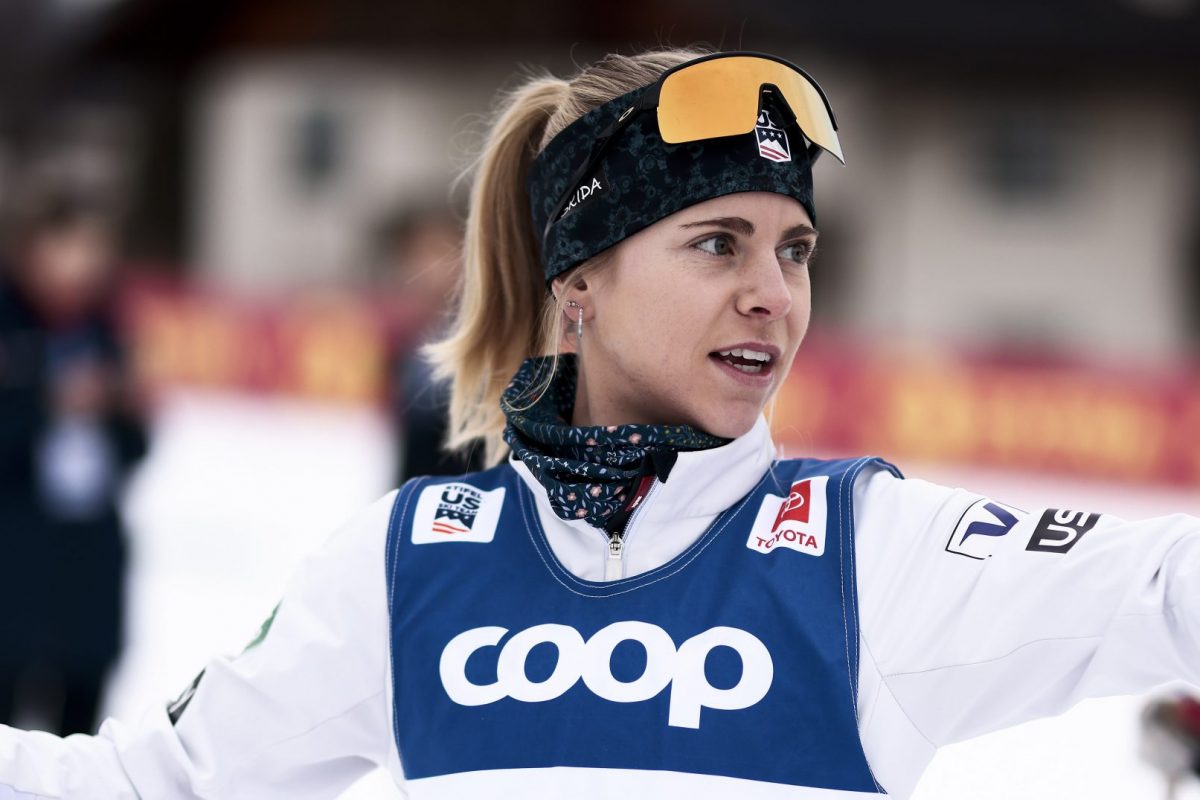Clare-Louise Brumley posted Australia’s best ever female cross-country ski performance at an Olympic Games in Torino. She finished 42nd out of 67 less than 10% behind winner Kristina Smigun of Estonia in the 15km Pursuit. Unfortunately she also suffers from exercise induced asthma. She was selected to ski the 30km freestyle at the Olympics but bronchitis exacerbated her asthma and she was unable to compete. Here is an interview I did with her:
 and I was in 38th after the 7.5km classic leg, had a good ski change over, moved up one place into 37th, then my place jumped around between 37th and 43rd over the skating leg ending in 42nd out of a field of 67. I felt enormous relief and satisfaction in crossing the finish line with a result I knew was reflective of what I could do.</p>
<p><b>You achieved (in the Pursuit) the best performance by an Australian female distance skier in terms of percentage behind the winner. Do you have any thoughts on what you need to do to take you to the next level?</b></p>
<p>Time is rewarded in our sport. I am learning about training, about racing and I’m finding out about the various locations where World Cup events are held. I can see how it all operates now. So I am very, very tempted to continue, but I’m also in financial ‘ruin’ right now (which I wouldn’t change for the world!). </p>
<p><b>How do you find competing on the World Cup Circuit?</b></p>
<p>Combining my World Cup debut with the pressure of Olympic selection was hard. I had not previously been to many of the locations where the World Cups where held and not knowing the set up is stressful. Unless you are highly trained, it is difficult to maintain racing form whilst traveling so much over a long time period. With experience these peripheral stresses gradually dissolve and the satisfaction of racing in an elite field emerges. In every race there was a reward because each race was against the best in the world and if I went out and work hard and there was no mishaps I got what I deserved. It is sweet satisfaction compared with chasing FIS points where a great race may not be rewarded. </p>
<p><b>When you came back to skiing you weren't wearing the mask. How did that come about and do you have to wear it all the time?</b></p>
<p>Athletes commonly use the mask in Scandanavia in very cold conditions. It's function is to trap a pocket of warm, moist air whilst at the same time allowing a reasonable ventilation rate. Cold, dry air is what triggers my asthma. Using the mask so significantly reduces my asthma, that I am able to moderate my medication to a more healthy dose, and dramatically improve the rate at which my lung congestion clears after races. </p>
<p><b>You manage to combine being an Occupational Therapist and doing a PhD with being an athlete. What steps do you take to handle this?</b></p>
<p>I can’t pretend to be that clever. Cross country skiing is a demanding sport because of the training required and the travel involved — particularly as an Australian. Last year I trained full time. It’s a hard balance we need to find between paid work so we can travel and time so we’re fit enough to achieve our goals. </p>
<p><b>Do you think that being an occupational therapist has helped you being an athlete? If so in what way?</b></p>
<p>Immediately after completing my OT degree I continued with post grad studies in Nutritional Medicine, which is the area I’m now doing my PhD in. The knowledge I gained in nutrition, medicine and holistic health has been fundamental to my skiing career. </p>
<p><b>Do you have any goals for the next few years?</b></p>
<p>I’d like not to have to put it in financial terms, but that is the reality. Right now I can’t get clarity on that so my plan this year is to focus on working, getting my studies back on track, and building a body that is free of niggling over-use injuries. Then, if I can create the opportunity, I would love to continue with my goals of making the World Cup red group, focusing on 2009 World Championships and achieving a good result in the 2010 Vancouver Olympics. </p>
<p><b>You missed a number of years from junior skiing on due to illness. What advice from that experience can you give to junior skiers? </b></p>
<p>Stress, be that from training, school, family, social, emotional can make you sick. When you are a junior you are perhaps more vulnerable to illness when your immune system is still maturing, school pressures are huge, self worth gets tied into achievement and your body can become exhausted. Be easy on yourself. You have time in this sport to concentrate on one thing at a time. I think we all learn the hard way, but remember that it’s better to do a small amount of consistent training, than be amazing for a year and collapse for the next 3. I stopped skiing in 1994 and began again in 2002 (7 years off). Aside from a few moments when I decided to train again (short lived) I was seriously unfit during this time. With some hard work and the opportunity to get as much rest as I needed, I built fitness quickly.</p>
<p><b><br />
Thanks very much Clare-Louise and good luck in your plans for the future.</b></p>
<p><BR><center><img decoding=)



